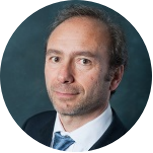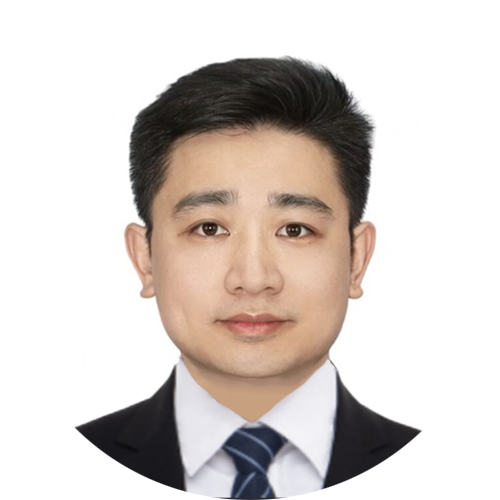Special Interview with Prof. Fabio Marra from the University of Florence, World's Top 2% Scientist 2025
On September 12, 2025, the Editorial Office of Hepatoma Research had the privilege of interviewing Prof. Fabio Marra from the University of Florence, Italy. Prof. Marra serves on the Editor Board of Hepatoma Research. Prof. Marra is recognized in the 2025 World’s Top 2% Scientists list, featuring in both the “2025 Career-Long Scientific Impact Ranking” and the “2024 Annual Scientific Impact Ranking.” The interview was conducted by Dr. Shaojun Shi from the Department of Organ Transplantation, Guangdong Provincial People's Hospital, Southern Medical University, China, who is also a Junior Editor Board member of the journal.
In this insightful conversation, Prof. Marra shared his perspectives on the key molecular and immunoregulatory pathways driving MASLD fibrosis, with particular attention to hepatic stellate cell-immune cell interactions and their role in disease progression toward hepatocellular carcinoma (HCC). He also discussed the promise and limitations of advanced experimental models, such as organoid-based systems, in reshaping MASLD and HCC research. The dialogue further explored the disordered immune microenvironment in MASLD and the opportunities that its modulation could create for personalized therapies. Prof. Marra highlighted the challenges of translating findings from immunotherapy and anti-fibrotic research into clinical practice, emphasizing the importance of bridging experimental advances with patient care.
Looking toward clinical practice, he underscored the growing value of non-invasive imaging techniques and circulating biomarkers in risk prediction and treatment monitoring, while noting the steps required for their successful adoption in routine care. He also stressed the role of multidisciplinary teams (MDTs) in improving early detection and timely intervention for MASLD-related HCC. Finally, Prof. Marra pointed to several research priorities for the coming years—ranging from fundamental mechanistic studies to the development of clinical tools and novel therapies. He noted that while substantial opportunities lie ahead, key challenges must be addressed to translate research breakthroughs into meaningful patient outcomes.
Interview questions:
1. From your perspective, what are the most critical molecular and immunoregulatory pathways—particularly hepatic stellate cell–immune cell interactions—in the progression or regression of MASLD fibrosis? How do these mechanisms influence the transition to HCC?
2. In recent years, remarkable progress has been made in both in vitro and in vivo models of fatty liver disease, including organoid-based systems such as 3D hepatocyte cultures. How are these advanced models changing the way we study MASLD and HCC? What limitations or technical challenges should researchers keep in mind when interpreting their results?
3. The disordered immune microenvironment of the liver is a fundamental mechanism in MASLD. Could modulation of this microenvironment pave the way for more personalized strategies in MASLD-related HCC? What do you see as the major challenges in translating immunotherapy and anti-fibrotic research into clinical practice?
4. How do you evaluate the role of non-invasive imaging and circulating biomarkers in predicting HCC risk and treatment response in patients with MASLD? In your view, what is needed to integrate these tools more effectively into routine clinical care?
5. How important are multidisciplinary teams (MDTs) in enhancing early detection and intervention for MASLD-related HCC?
6. Looking ahead over the next 3–5 years, which areas of MASLD-related HCC research—whether in fundamental mechanisms, clinical tools, or therapeutic innovations—do you expect will have the greatest real-world impact?
Interviewee Profile

Fabio Marra, M.D., is Professor of Medicine in the Department of Experimental and Clinical Medicine at the University of Florence, Italy, where he also serves as Head of the Hepatology Unit. He is internationally recognized for his contributions to both research and clinical practice in liver diseases.
His research focuses on the pathogenesis and clinical management of chronic liver diseases, with particular emphasis on MASLD/MASH, liver fibrosis, and hepatocellular carcinoma (HCC). He has made significant contributions to understanding the role of the immune microenvironment, fibrogenic mechanisms, and the use of innovative models such as organoids in liver disease research. Prof. Marra has published extensively in high-impact journals and remains an active member of major international societies, including the European Association for the Study of the Liver (EASL), the Italian Association for the Study of the Liver (AISF), the American Association for the Study of Liver Diseases (AASLD), and United European Gastroenterology (UEG).
Interviewer Profile

Shaojun Shi, M.D., Ph.D., is a physician in the Department of Organ Transplantation at Guangdong Provincial People’s Hospital, China. He received his Ph.D. from the University of Groningen, the Netherlands, and serves on the Vanguard Committee of the International Liver Transplantation Society (ILTS). His clinical and research expertise centers on liver transplantation and end-stage liver disease.
Dr. Shi’s research interests include mechanisms and prevention of biliary complications during the perioperative period of liver transplantation, as well as organoid-based translational studies on hepatobiliary diseases. He has been recognized with a Marie Curie Fellowship from the European Union and has undertaken academic exchanges at the Li Ka Shing Faculty of Medicine, University of Hong Kong.
Managing Editor: Victoria Lee
Language Editor: Catherine Yang
Production Editor: Ting Xu
Respectfully Submitted by the Editorial Office of Hepatoma Research







